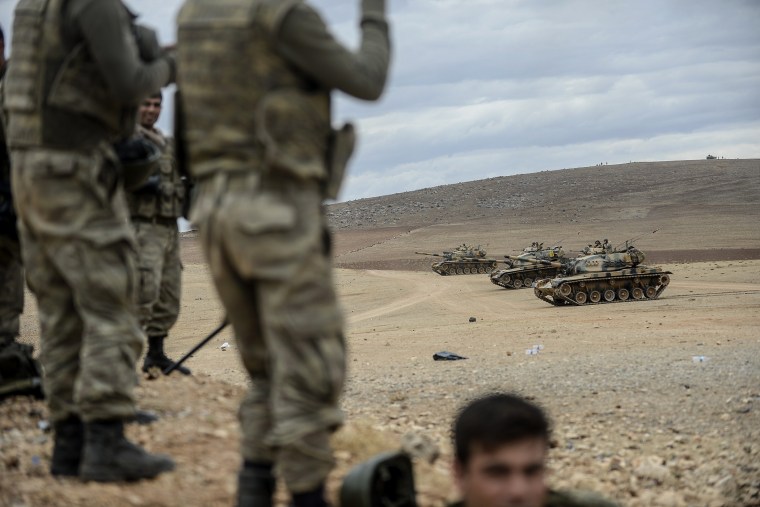Turkey will join the U.S.-led coalition against the Islamic State of Iraq and Syria, the Associated Press reported on Thursday.
Turkey follows in the footsteps of the United Kingdom, which voted last week to participate in airstrikes in Iraq, but not Syria. The addition of Turkey also comes on the heels of the President Obama's appeal to the United Nations General Assembly in New York, where the president urged the international community to unite against Islamic extremism.
Meanwhile, the U.S. launched more than 10 additional airstrikes Wednesday against ISIS in Iraq and Syria, U.S. Central Command announced Thursday. Four strikes hit targets in Syria and seven strikes were launched in Iraq, CENTCOM said. The U.S. has carried out more than 300 strikes since its campaign against the terror group began in August.
Members of Parliament voted 298-98 on Thursday evening to approve the measure, after several hours of debate over whether to authorize the use of military force against ISIS, the terrorist militia that has taken over large parts of Iraq and Syria and killed thousands of civilians.
Turkey is the only North Atlantic Treaty Organization member in the Middle East, has one of the world's largest armies, and is a common entry point for foreign fighters heading to Syria.
The pressure for Turkey to join the country had been mounting all summer.
ISIS has seized control of several cities near the border with Turkey, prompting more than 100,000 refugees to flood their borders and raising fears that their own territory could be threatened. A Turkish mausoleum —the extremely valuable tomb of Suleyman Shah, the grandfather of the founder of the Ottoman empire -- which lies inside Syria but is technically owned by the Turks, is also reportedly surrounded. Turkey deployed Special Forces in March, but it’s unclear how the situation will play out.
But until today, the government in Ankara had shied from joining the fight against ISIS,which risks strengthening the neighboring regime of Syrian President Bashar al-Assad, a major geopolitical rival. Joining the U.S.-led war also means a de facto alliance with the Kurds, who are fighting ISIS but also seek to create an independent state that includes parts of Turkey. At the same time, the Kurds have pressured Turkey to get involved, saying they’ll take peace talks off the table if ISIS massacres the Syrian Kurdish town of Kobani, which is now surrounded. Turkey's policy of opposing the Kurdish separatist movement is now complicated by its participation in the U.S.-led coalition, which seeks to arm Kurdish troops fighting ISIS in Iraq.
